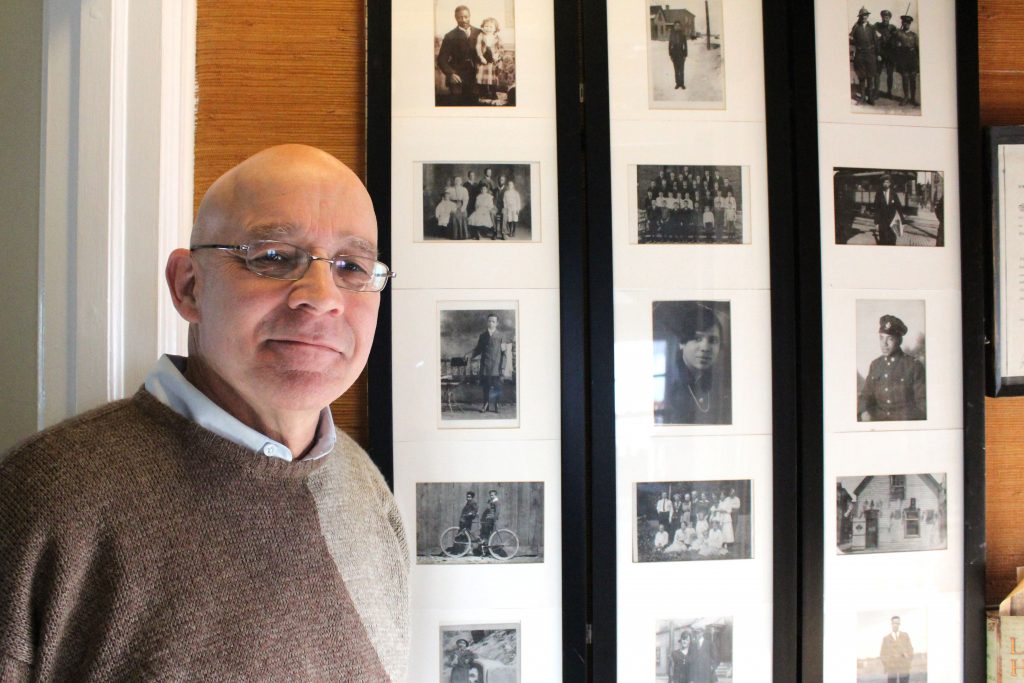Tom Barber lectures about his family history for Black History Month
By: Nadya Pankiw
Just before the beginning of Black History Month, Tom Barber stood in his basement looking through newspaper clippings, overflowing photo albums and a hard drive of recorded interviews with family members.
The collection constitutes a deep and thorough history of the Barber family, the subject of a lecture he delivered at the Main branch of the Ottawa Public Library on Feb. 1.
The event was promoted by Black History Ottawa, which has co-ordinated events celebrating Black History Month every February in the nation’s capital since 1986.
Throughout the month, 25 events will showcase that history through music, comedy, fashion shows, film screenings and other events and exhibits.
Sarah Onyango has volunteered for Black History Month for more than a decade. In that time, she said, she has seen increased diversity at events, especially among children, including those from mixed-race and non-black families.
“Little kids grow up together. Until you tell them ‘you’re black, you’re this, you’re that,’ they don’t notice,” she said.
Onyango said while she’s seen growing participation and diversity among certain demographics, Black History Month cannot reach its full potential until an even greater range of the city’s population is seen at all events.
“We really wish we would have a much more mixed audience, because we are preaching to the converted. So, we’d like the non-converted to come to our Black History Month events and learn,” Onyango said.
Adrian Harewood, the co-host of CBC Ottawa’s supper-hour newscast, said his own black history was an important part of his childhood.
He said he will be attending as many events as possible to celebrate that.
“I think that’s why it’s important to ask questions, “he said. “That’s why it’s important to listen and also respect the fact that people have stories to tell, and those stories are worthy of being honoured.”
Barber’s interest in learning about his own black history started at a young age, including his family’s roots in the U.S.
“When I was a kid, I said, ‘I’m going to go there and see Kentucky,’ and my family said I was stupid,” Barber said.
That decision helped Barber find what he said felt like endless information about his family’s origins. With the help of locals and well-preserved archives, he learned about one of his ancestor’s time as a slave in Kentucky, and his later life in Ottawa.
“When I tell this story, it’s not the story you generally hear about slavery,” Barber said.
Barber’s forebear Paul Barber was born to slave parents on July 13, 1850, in Bardstown, Kentucky.
When he was just four-years old, Paul Barber came into the possession of slave owner Philetus Swift Barber. In 1865, during the fallout of the emancipation of slavery, Paul Barber was freed. Unlike many freed slaves, he chose to stay in Kentucky and work for Philetus.
“There’s a lot of gaps,” Barber said. “And one of these days I’m going to fill all of those gaps.”
These gaps left the next 20 years of Paul Barber’s life a mystery. But Tom does know his grandfather arrived in Ottawa in 1885 and began training horses for the City of Ottawa.
In 1892, Paul Barber married Elizabeth Brown, a white woman. The couple raised five children, with Tom’s father, Thomas Cyril Barber, being the only one born in the 20th century.
The Barber family eventually became well-known in Ottawa: Tom’s uncle Paul was a newspaper vendor at the bustling intersection of Bank and Sparks streets; uncle Jack was a prominent speed-skater; and uncle Joe was a respected boxer.
In 2016, part of a street in Lowertown was renamed in honour of the Barber family.
Tom said his family history is a reminder of the diversity of experience present in the black historical narrative in Ottawa.
“If you don’t go out and tell the story, then no one’s going to know,” he said.

